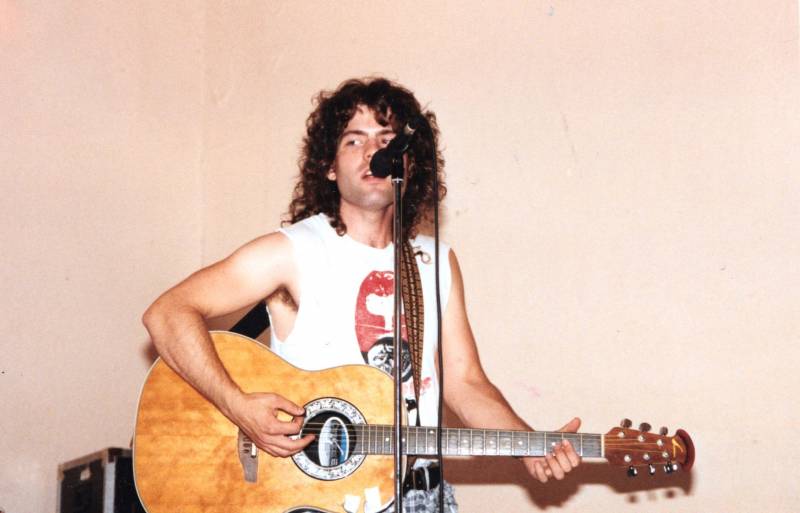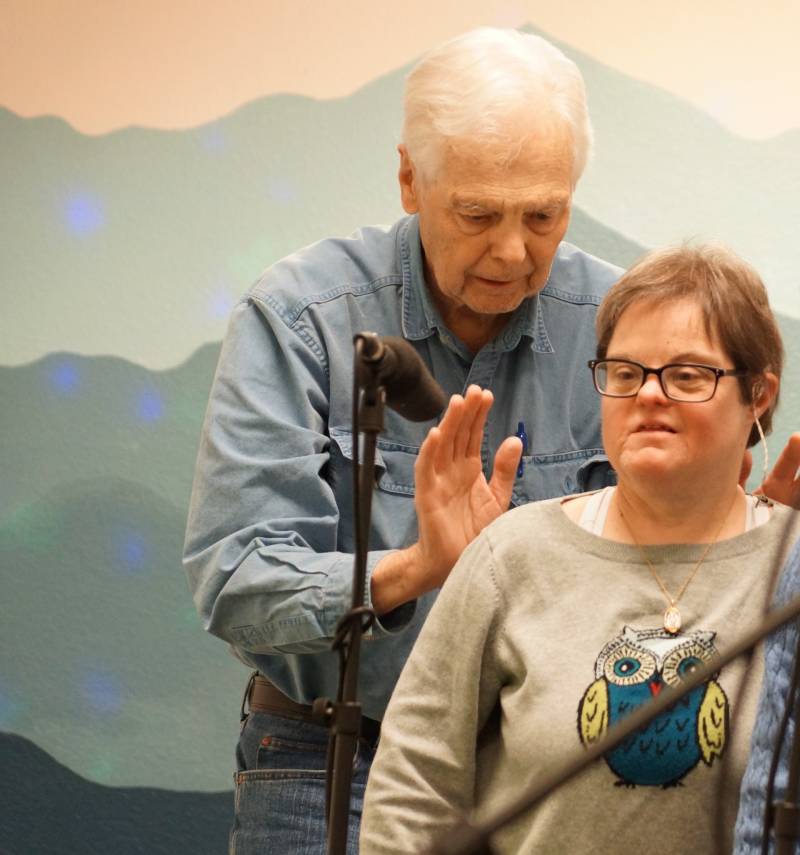Musician Ian Brennan was born in Oakland and made a name for himself performing in live shows at the Brainwash Laundromat in ‘90s San Francisco. He went on to become a producer, working with artists like Lucinda Williams and Ramblin’ Jack Elliot.
But Brennan is best known for his field recordings. Along with his wife, photographer and filmmaker Marilena Delli, Brennan has recorded musicians around the world, like the inmates at Zomba Prison in Malawi and genocide survivors in Cambodia. He won a Grammy Award for the production of the album Tassili from the band Tinariwen, which has roots in Mali and Algeria.
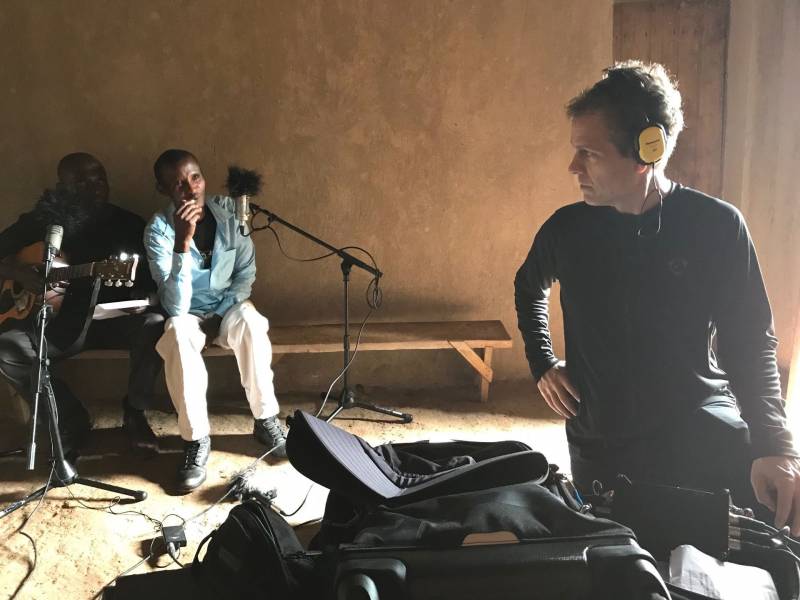
More recently, Brennan has worked closer to home, producing an album called Homeless Oakland Heart in 2019, which features recordings of unsheltered people on the streets of West Oakland — singing, rapping, reciting poetry and playing instruments, including a broken, nylon-string guitar one man had in his tent.
Now, Brennan has turned his mic on his older sister, Jane Brennan, who was born with Down syndrome. She and her companions at an adult care facility in Contra Costa County call themselves “The Sheltered Workshop Singers.” They released their first album, “Who You Calling Slow?” this month.
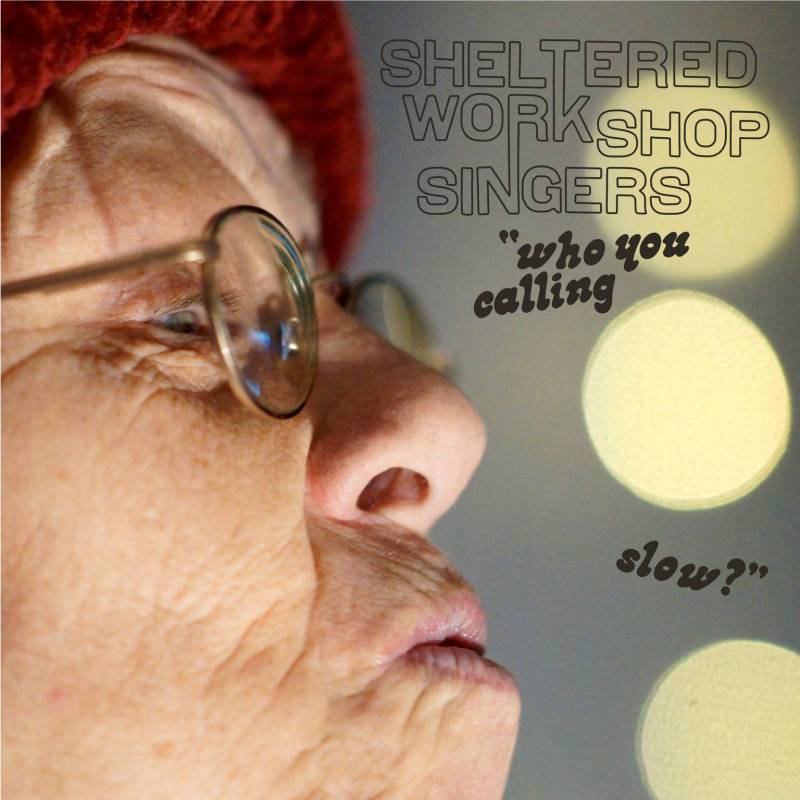
Brennan sat down recently to talk with California Report Magazine host Sasha Khokha about recording the album. Here are some highlights.
Comments have been edited for brevity and clarity.
On Growing Up With Jane
Jane was and is one of the biggest factors in my life. The most significant individual growing up really in my whole world was her. We’re only 14 months apart. And for better or for worse, she took care of me and she took care of the rest of us and the family. And it was because of her that we that we stayed together as a family. I don’t know that we would’ve made it without her.
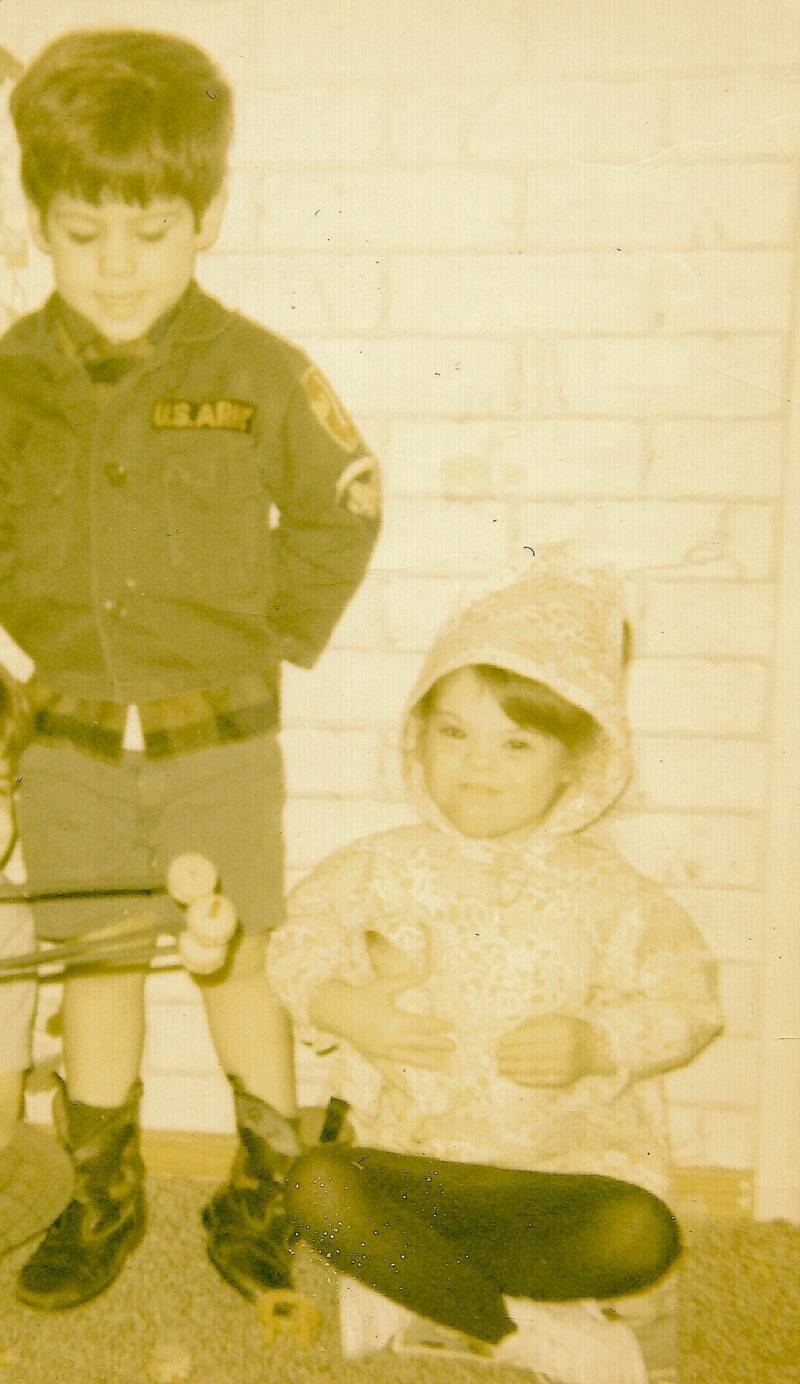
I started playing guitar when I was five. I don’t really remember not playing music. I only really remember music as a part of everyday life, as a way to connect, a way to communicate. For my sister and her peers, it was dance — the freedom that they express themselves with — was always so extraordinary.

